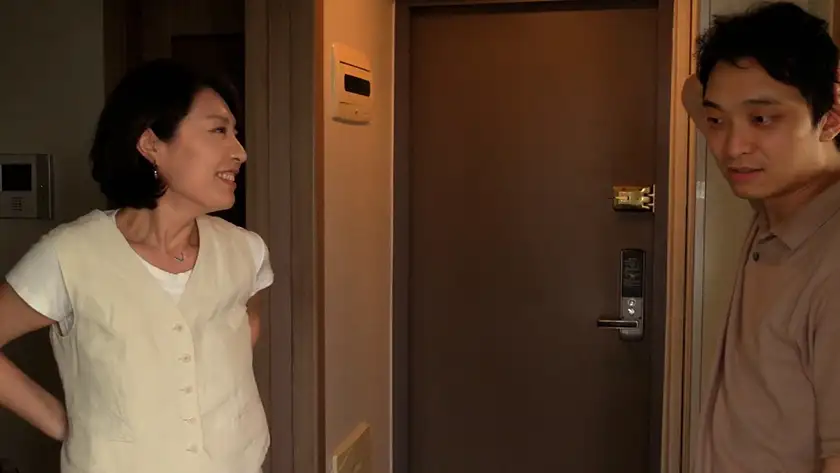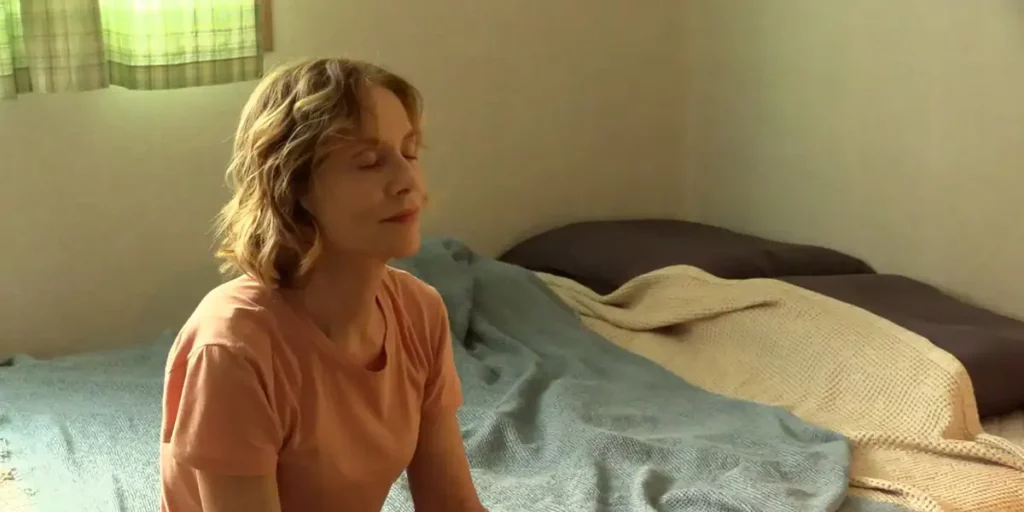Berlinale favourite Hong Sang-soo returns with A Traveler’s Needs, whose initial promise and awkward comedy eventually fade into something wholly mundane.
Prolific South Korean filmmaker Hong Sang-soo (The Woman Who Ran), who averages at least one film a year, is back with another. Yeohaengjaui pilyo (A Traveler’s Needs) plays in the Competition section of 2024’s Berlinale Film Festival, and it bears all the trademarks of Hong’s previous works, from the static camerawork, slow zooms, domestic settings, and wandering conversations. A Traveler’s Needs will likely please Hong fans, but for newcomers or others, it can be an alienating, frustrating experience. It’s a film of ups and downs; certain moments and scenes sparkle, whilst others unravel into tepid drama.
The synopsis of A Traveler’s Needs is vague, and if you’re hoping for any further clarity by the time the end credits roll, you won’t find much. It’s an odd film led by leading French actress Isabelle Huppert (The Piano Teacher), who has crafted a special working relationship with Hong over the years. Huppert’s character is the sort of person who sits on park benches playing the recorder, walks around barefoot, and lies on rocks in the sun. It’s a peaceful, reflective existence, but her lack of income pushes her to teach French to two Korean women. Her meandering journey is languid in pacing and sees her flit around the suburban streets of South Korea with a variety of characters.
Initially, A Traveler’s Needs shows a lot of promise. We first witness Huppert’s unnamed character with one of her students as she tries out her unique teaching technique. She disregards textbooks and other conventional methods, opting instead for deeper discussions and drilling down into how her students feel about certain things, such as playing a musical instrument. This basis of A Traveler’s Needs is interesting. It is a compelling reflection on language, on humans, and how we relate to one another across the boundaries of nationality. Eventually, however, Hong’s film becomes an exercise in mundanity. Some interesting ideas continue to float to the surface, but they quickly wither away with little impact.

There is an overriding charm and humour to A Traveler’s Needs though. The comedy is bolstered by wonderful acting that highlights the stilted barrier of different languages. Kwon Hae-hyo (The Novelist’s Film) is a particular highlight. Huppert is also largely terrific, an almost ethereal presence who floats in and out of scenes with an amusing nonchalance. After a while though, her character becomes a grating one, which is amplified by the film’s repetitive structure.
The comedy eventually becomes less engaging because of how flat later scenes feel, with some dragging on for an inordinate amount of time and conversations bearing no real interest. Hong’s rigid style is often fascinating, but it can cause the dramatic resonance of his films to be so sporadic. It could be argued that this blandness is a direct reflection of our everyday lives, of the mundane domesticity we all experience. That might be accurate, but it does not make for the most interesting watch.
A Traveler’s Needs premiered at the 2024 Berlin Film Festival and will be released in US theaters on November 22, 2024. Read our review of Matt and Mara!

